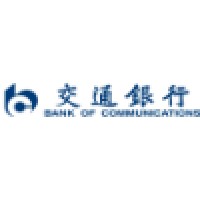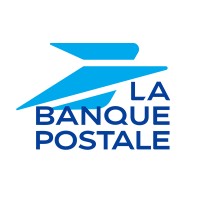Company Cyber Security Posture
NANA
NA Company Details
NA
NA
NA
NA
NA
NA
Scan still pending
NA
NA
Between 200 and 800
This score is AI-generated and less favored by cyber insurers, who prefer the TPRM score.
 NA Global Score
NA Global Score.png)

Company Scoring based on AI Models
| Model Name | Date | Description | Current Score Difference | Score |
|---|---|---|---|---|
| AVERAGE-Industry | 03-12-2025 | This score represents the average cybersecurity rating of companies already scanned within the same industry. It provides a benchmark to compare an individual company's security posture against its industry peers. | N/A | Between 200 and 800 |
Company Cyber Security News & History
| Entity | Type | Severity | Impact | Seen | Url ID | Details | View |
|---|
Company Subsidiaries

NA
Access Data Using Our API

Get company history
.png)
NA Cyber Security News
Santander's commitment to cybersecurity in a post-quantum cryptography world
The rapid advancement of quantum computing represents a new frontier in cybersecurity. At Santander, we recognize its significance, ...
SEC fines Blackstone, Robinhood, Santander subsidiaries for recordkeeping breaches
WilmerHale, Debevoise and Simpson Thacher were among the firms instructed by a swathe of investment advisory and broker-dealer companies that admitted failing ...
Santander partners with Coursera to provide free access to training courses for 10,000 people for one year
The goal of this partnership between Santander and Coursera is to enhance employability and help individuals improve their career opportunities ...
Snowflake slams 'more MFA' button again – months after Ticketmaster, Santander breaches
Snowflake continues to push forward in strengthening its users' cybersecurity posture by making multi-factor authentication the default for ...
Banco Santander's Bold Bet On Latin American Expansion
Banco Santander is setting aside more than $2 billion for investment in Mexico over the next three years, a key move in its Latin American growth plan.
Urgent Statement from Banco Santander: If You Make This Gesture, There Will Be No Turning Back
Banco Santander has issued an urgent warning to its customers. It has done so after detecting an increase in fraud attempts using a ...
Santander launches deepfake campaign to promote AI scam awareness
Deepfakes, which are videos, sounds, or images of real people digitally manipulated through artificial intelligence (AI), pose a significant ...
Obvious passwords: The focus of our latest global cybersecurity awareness campaign
To coincide with Password Month, Santander has launched a global awareness campaign about obvious passwords. Because when facing a global ...
All Santander staff and millions of customers have data hacked
Hackers are attempting to sell what they say is confidential information belonging to millions of Santander staff and customers.

NA Similar Companies

Bank of Communications Co., Ltd. London Branch
Founded in 1908, Bank of Communications Co., Ltd. ("the Bank") is one of the oldest banks in China as well as one of the note-issuing banks in modern China. The Bank was listed on the Hong Kong Stock Exchange in June 2005 and on the Shanghai Stock Exchange in May 2007. The Bank currently has 18

Banco de Chile
Somos una Corporación líder y comprometida con el país que brinda servicios financieros de excelencia a cada segmento de clientes. Buscamos permanentemente ser el mejor Banco para ellos, ser el mejor lugar para trabajar y ser la mejor inversión para nuestros accionistas. Lo hacemos de forma colabora

Bank Saderat Iran
As a private bank , BSI was established in 1952 . with around 3000 active branches , BSI runs the largest banking network in Iran . In 2000 , BSI started offering electronic online services , and now pioneers in the number of online branches ATM . machines , and point of sale terminals with remarkab

Banco Sabadell
Banco Sabadell es el cuarto grupo bancario privado español, integrado por diferentes bancos, marcas, sociedades filiales y sociedades participadas que abarcan todos los ámbitos del negocio financiero bajo un denominador común: profesionalidad y calidad. Un equipo humano joven y bien preparado, do

La Banque Postale
La Banque Postale is a ‘bank like no other’ driven by the post office values of local presence and service. As heir to La Poste Financial Services, it is the only bank to have been tasked with a mission to provide access to banking services under the law introduced to modernise the French economy

Bank of Ireland
Welcome to Bank of Ireland on LinkedIn. We're here to keep you up to date on our latest news and to provide useful information and guidance to support your financial needs. A leading Irish bank, we offer a wide range of financial products including savings, loans, mortgages and deposit accounts.

Frequently Asked Questions
Explore insights on cybersecurity incidents, risk posture, and Rankiteo's assessments.
NA CyberSecurity History Information
How many cyber incidents has NA faced?
Total Incidents: According to Rankiteo, NA has faced 0 incidents in the past.
What types of cybersecurity incidents have occurred at NA?
Incident Types: The types of cybersecurity incidents that have occurred include .
Additional Questions
What Do We Measure?
















Every week, Rankiteo analyzes billions of signals to give organizations a sharper, faster view of emerging risks. With deeper, more actionable intelligence at their fingertips, security teams can outpace threat actors, respond instantly to Zero-Day attacks, and dramatically shrink their risk exposure window.
These are some of the factors we use to calculate the overall score:
Identify exposed access points, detect misconfigured SSL certificates, and uncover vulnerabilities across the network infrastructure.
Gain visibility into the software components used within an organization to detect vulnerabilities, manage risk, and ensure supply chain security.
Monitor and manage all IT assets and their configurations to ensure accurate, real-time visibility across the company's technology environment.
Leverage real-time insights on active threats, malware campaigns, and emerging vulnerabilities to proactively defend against evolving cyberattacks.




